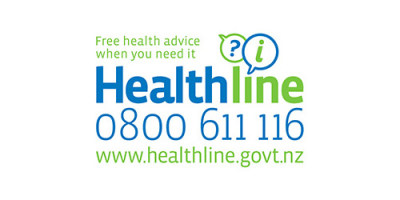Celebrating the start of life-saving screening
After more than a year in the planning, Nelson Marlborough Health (NMH) has launched the National Bowel Screening Programme in the region.
Over the next two years approximately 30,000 people aged 60 – 74 will be invited to participate in the programme, with the first invitation letters sent on 14 August.
Screening save lives by detecting pre-cancerous polyps, or finding bowel cancer at an early stage. New Zealand has one of the highest rates of bowel cancer in the developed world and the Nelson Marlborough region has the fourth highest rate in the country.
It also has the lowest bowel cancer mortality rate of 18.1 per 100,000 people (Ministry of Health data, 2016) – an indicator that bowel cancer can be successfully treated if detected and treated early enough.
NMH General Manager of Clinical Services Lexie O’Shea says that, with the fourth highest national rate of bowel cancer nationwide, the introduction of the bowel screening programme is particularly important for Nelson Marlborough residents and communities.
“It is especially important for Maori people, because while Maori people have lower rates of bowel cancer, they are more likely to die of bowel cancer than non-Maori. “This is often because they are diagnosed with bowel cancer at a more advanced stage than non-Maori, so we are asking people to encourage their whanau – their matua and kaumatua – to do the test when it comes to them in the post,” Mrs O’Shea says.
“The screening test will save lives and support our families, whānau and communities to be healthy for longer. I urge everyone eligible to take the test.”
About the National Bowel Screening Programme
NMH is the second DHB in the South Island to roll out the programme, following Southern DHB’s launch in July, and is the 5th DHB nationwide to start screening.
People aged 60 – 74 years of age are encouraged to ensure that their details are up to date with their GP, to ensure they are easily contactable through the mail.
The programme is for people with no symptoms of bowel cancer. Anyone who has any concerns about their bowel health is advised to contact their GP.
Frequently asked questions
What are the symptoms of bowel cancer?
Common symptoms of bowel cancer may include:
- a change to your normal pattern of going to the toilet that continues for several weeks
- blood in your bowel motion.
Although these symptoms are usually caused by other conditions, it’s important to get them checked by your doctor.
Why is bowel screening important?
Bowel cancer is the second highest cause of cancer death in New Zealand. Every year more than 3000 people are diagnosed with bowel cancer and more than 1200 die from the disease. Nelson Marlborough Health has the fourth highest rate of bowel cancer nationwide. Bowel screening every two years can help save lives by finding bowel cancer at an early stage, when it can often be successfully treated. There may be no warning signs that someone has bowel cancer. Bowel screening can also detect polyps. These are not cancer, but they may develop into a cancer over a number of years. Most polyps can be easily removed, reducing the risk that bowel cancer will develop.
Who should participate in the programme?
People aged 60 – 74 years of age, who are eligible for publicly funded healthcare, will be invited to participate in the programme. It is important to note that:
i) If you have symptoms of bowel cancer, you should see your GP immediately and not wait for a screening invitation
ii) If either of the following apply to you then you may not receive additional screening invitations
- you are already on a bowel polyp or bowel cancer surveillance programme (through the public health system)
- you have been treated for bowel cancer, or are currently being treated for bowel cancer
- you have had your large bowel removed
- you are currently being treated for ulcerative colitis or Crohn’s disease
How do I participate in the programme?
You do not have to register for the programme, but your contact details (especially postal address) need to be up to date with your GP because participants will be contacted by mail.
Over the next two years, people aged 60-74 who are eligible for free public healthcare in NZ will be sent an invitation, consent form and test kit in the mail.
- People who are close to turning 75 (the cut-off age for eligibility) will receive the first letters
- People currently aged 60-74 will be invited on their birthdates, allowing for a constant and even flow of invitations over 24 months:
- People who have a birthdate with an even number will receive an invitation in year 1 (between August 2018 and August 2019)
- People who have a birthdate with an odd number will receive an invitation in year 2 (between August 2019 and August 2020)
3. People who turn 60 at any time from the launch (14 August) will be invited straight away. After a person has been invited for the first time, future correspondence will be based on their previous screening dates.
How does the test work?
The faecal immunochemical test (FIT) is easy and simple to do in the privacy of your own home can detect tiny traces of blood present in a small sample of faeces (your bowel motion, or poo), which may be an early warning sign that something is wrong with a person’s bowel.
Samples of faeces are sent back for testing through the mail. People with a positive result will be contacted by their GP to discuss their results and to plan further investigation. Those participants with a negative FIT result will be recalled for repeat screening after two years.
What does it mean if you have a positive result?
A positive test result does not necessarily mean that bowel cancer is present. Small amounts of blood in a bowel motion are most commonly caused by polyps, or other minor conditions such as haemorrhoids (piles), which can easily be treated. A positive test result means that further investigation is required. This will usually be a colonoscopy (an internal examination of the large bowel).
Why is the programme only for people aged 60 – 74 years?
In the Waitemata pilot, bowel cancer was most common in those over aged 60, so the programme has been designed to screen the age group where we can achieve the greatest impact for our population. However, bowel cancer can happen at any age and if you have any concerns about your bowel health you should talk with your GP.
What happens if I want to do my own test using a kit (FOBT kit) that I buy myself, instead of waiting to be invited through the national screening programme?
The Ministry of Health doesn't endorse or encourage the use of faecal occult blood testing (FOBT) kits outside the National Bowel Screening Programme.
If you have symptoms such as blood in your bowel motion or a change in your bowel habit that persists, you should talk to your GP.
If you have a family history of bowel cancer you may be be referred for surveillance colonoscopy or to the familial gastrointestinal cancer service.
A positive result from an FOBT kit can be caused by other conditions, besides bowel cancer. For every 50 people who have a positive result, as part of the national bowel screening programme, an average of three or four will be found to have cancer.
The Ministry's position statement about FOB kits is available on their website here.
Who can I talk to about the programme?
To find out more visit www.timetoscreen.nz, call 0800 924 432 or talk to your doctor





